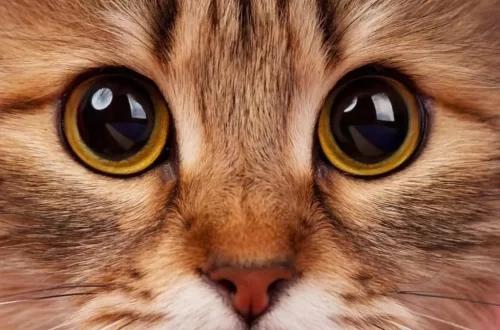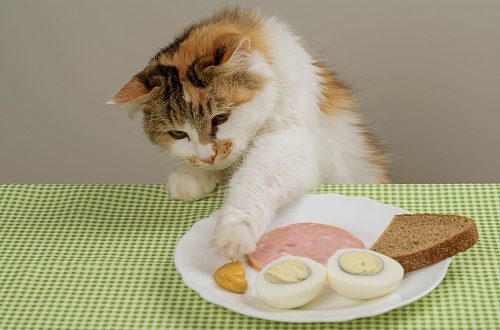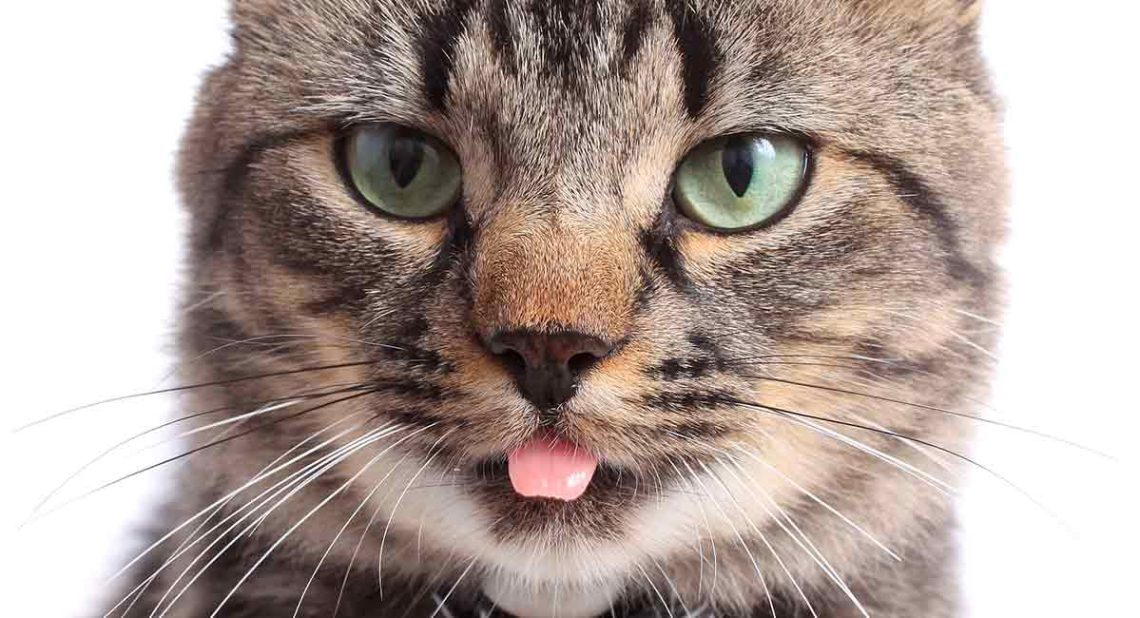
Why do cats stick out and show their tongue?
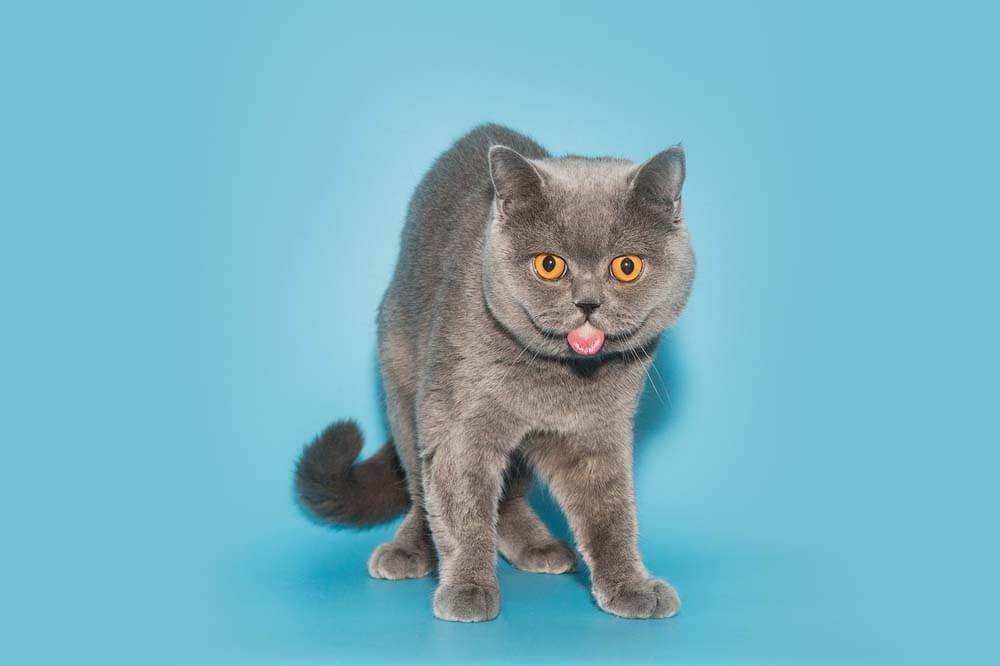
Contents
Non-dangerous reasons
Switching attention
If you are a cat owner or fanatic, chances are you have seen this phenomenon. Our pets sometimes just don’t put their tongue back in place after sticking it out, and we are touched by the tiny bit of tongue sticking out of their mouth. This often happens because your pet was frightened of something while licking, distracted by food or an unfamiliar smell.
However, it is worth remembering that in older animals, the frequent manifestation of such behavior may be associated with the development of dementia. If you observe any other changes in the actions or condition of your pet, we recommend that you contact your veterinarian.
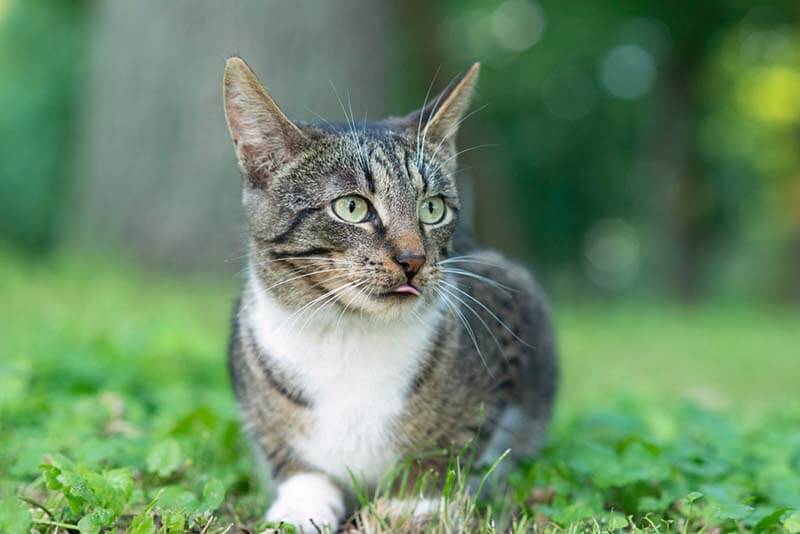
Complete relaxation or sleep
Have you ever had a situation where you woke up with your mouth open? This happens with cats too. During sleep, the muscles relax, causing the mouth to open slightly and the tongue to protrude. Perhaps in a dream, the cat makes quiet sounds and clicks its tongue. Usually this is not a cause for concern.
Something stuck to the tongue
Another reason why cats stick out the tip of their tongue is due to the peculiarities of their physiology. Our pets have tiny, hook-like structures on their tongues that help them comb and swallow water. These papillae can cling to food as well as other items that may be less desirable to your pet. Perhaps your furry friend just sticks out his tongue in the hope that the crumb stuck to it will fall off.
Breed predisposition
In the animal world, there are brachycephalic (also called flat-faced or short-faced) cat breeds, such as the Persian, Himalayan, or Burmese. In such pets, the anatomy of the face may not be quite correct, and this makes it difficult to constantly keep the tongue inside.
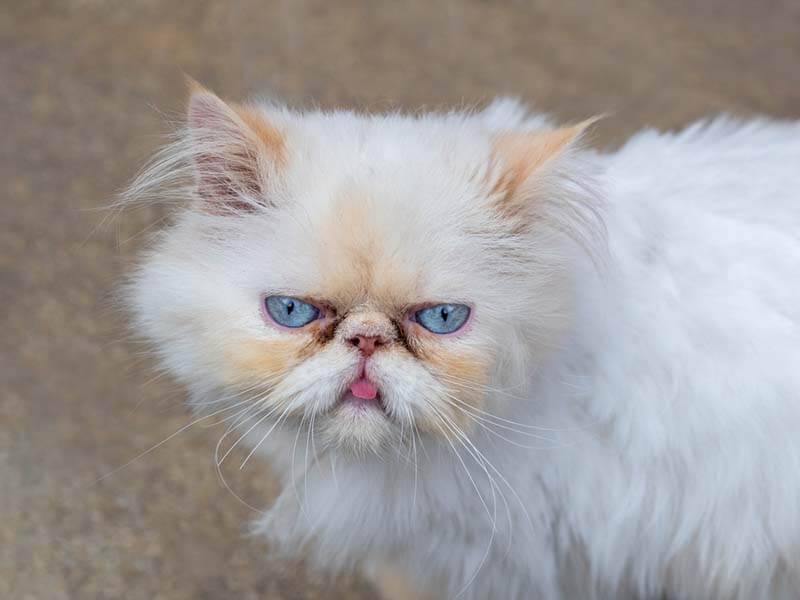
Pathologies
Motion sickness, stress or anxiety
If you notice that your cat sticks out its tongue while riding in a car, it is likely that she is motion sick. According to veterinarians, motion sickness in cats is usually caused by the stress and anxiety that comes with traveling. You can consult with a specialist to select the appropriate remedies to reduce your pet’s stress during these situations.
Nausea
Cats get sick too. You can identify this cause by the unmistakable sound of vomiting. You may also notice that your furry friend often licks his lips or “clicks” his tongue. The list of reasons why a cat may vomit is long, from changes in diet to the selection of inappropriate medications. Of course, in this case, the exact cause of the problem should be clarified with a veterinarian.
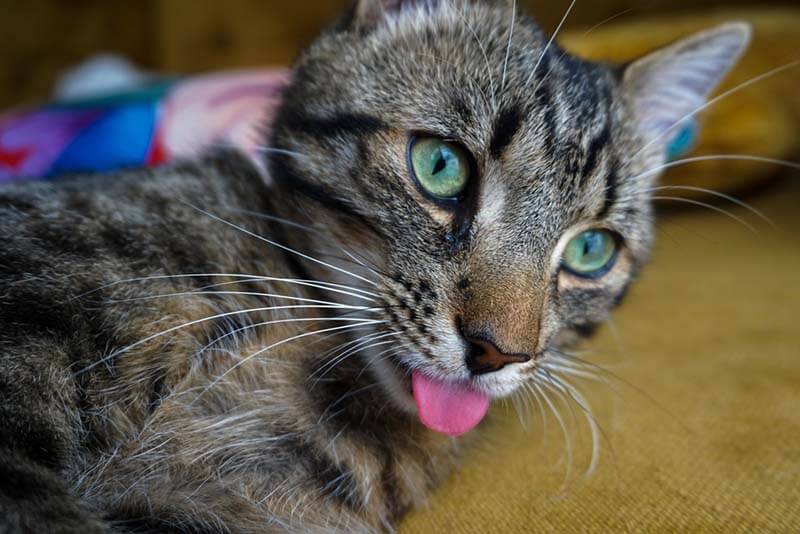
Neurological problems
Because tongue control is also linked to the neurological system, several less common neurological and neuromuscular disorders can also lead to abnormal tongue movements. As a rule, such diseases are accompanied by other strange actions of the cat and are established during clinical diagnostics.
Respiratory infection or airway blockage
If your cat is coughing, has a history of heart or respiratory disease, is having difficulty breathing or choking, or you see blue gums or tongue, it’s best to play it safe and contact your veterinarian immediately.
Shortness of breath in the heat
Although your cat may need to take a breath after active play, shortness of breath in these animals is not a normal occurrence, as it is in dogs. So if you notice your tongue hanging out or acting lethargic on a hot day, find a cool spot with clean water for him. If your pet does not feel well or passes out, he should be taken to the veterinarian immediately, as this may be a sign of heat stroke.
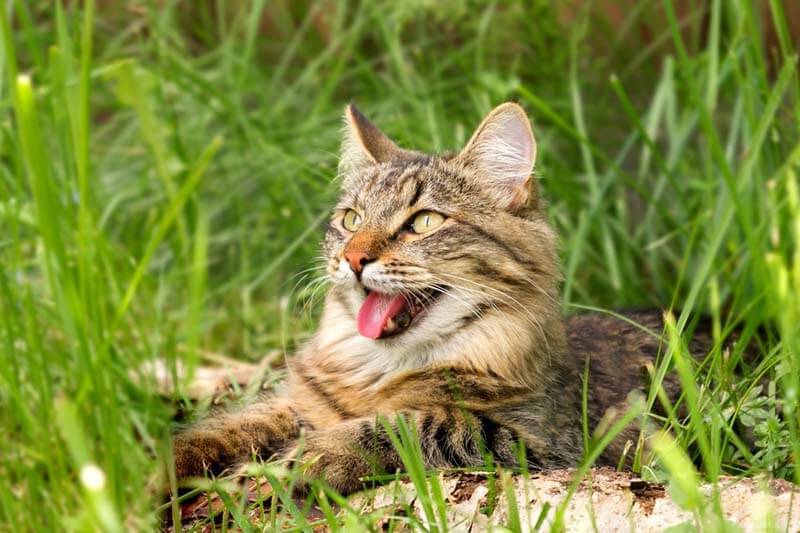
Periodontal disease
If your cat’s actions are accompanied by profuse salivation, lack of interest in food, discomfort while eating, or bad breath, she may need to see a feline dentist. Bacteria and food can accumulate on your cat’s teeth, turning into plaque. Proper dental hygiene in cats, as in humans, prevents the formation of tartar, the development of gingivitis and periodontitis. Therefore, all pets over the age of one year are recommended to undergo a complete cleaning and examination of the teeth by a specialist.
Stomatitis
Stomatitis is an inflammation in a cat’s mouth that is accompanied by red, irritated gums, tongue, and other oral tissues. Stomatitis can be a very painful condition, with the most common symptoms being decreased appetite, drooling, bad breath, and unkempt coat. Symptoms may also include protruding tongue and frequent touching of the paws on the muzzle.
There is nothing wrong with the fact that the tip of your pet’s tongue is sometimes slightly visible from the open mouth, but if this process is accompanied by other changes in the behavior and condition of the animal, we recommend that you consult a specialist.




